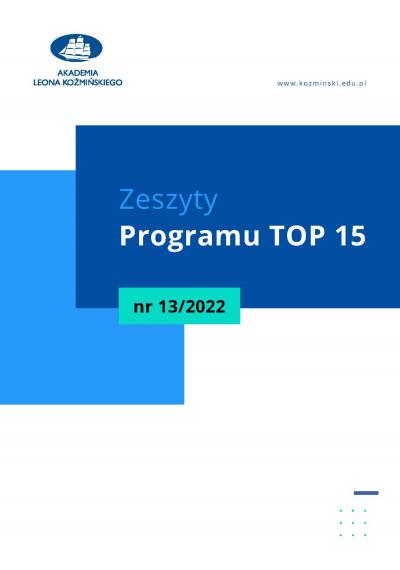Status prawny platform internetowych w umowach o przewóz osób
Anna Duplicka
Akademia Leona Koźmińskiego
2/2021 11 () Zeszyty Programu TOP 15








